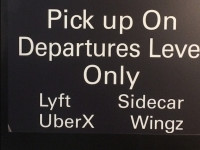The very public fight over ride sharing services such as Uber was in the spotlight again last week as taxi drivers took to the streets in Toronto to protest against the ongoing availability of unregulated services. The result was a public relations nightmare: drivers comparing Uber to ISIS, engaging in dangerous activity with cars on the road, slowing the ability for an ambulance to arrive at its destination, and even injuring a police officer riding a bicycle.
My weekly technology law column (Toronto Star version, homepage version) notes that the hysterics are unlikely to generate much support from the public, but they do point to the need for local municipalities to address the festering policy issue. Uber and other ride sharing services are too popular among consumers to be banned. Nor should they be. The injection of new competition and innovation is good for the public, offering more consumer choice and new economic opportunities for drivers. Indeed, much of the demand for alternatives reflects frustration with poor service that can emerge in an artificially closed market.








